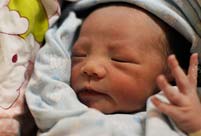 6 Chinese nurses win Florence Nightingale Medal
6 Chinese nurses win Florence Nightingale Medal
 Lady of mystery: Female SWAT team in prison disclosed
Lady of mystery: Female SWAT team in prison disclosed
 Tibetan ethnic costumes presented during tourism festival in NW China
Tibetan ethnic costumes presented during tourism festival in NW China
 Weekly selection of world photos (Aug.19-Aug.24)
Weekly selection of world photos (Aug.19-Aug.24)
 Boy pushed to air, 2 meters high by fountain in Huibei
Boy pushed to air, 2 meters high by fountain in Huibei
 Vintage cars exhibited at auto cultural festival in China's Shanxi
Vintage cars exhibited at auto cultural festival in China's Shanxi
 Military plane crashes in NE China
Military plane crashes in NE China
 Baby born to save his sister - the story of a savior sibling
Baby born to save his sister - the story of a savior sibling
 Those embarrassing copycat buildings
Those embarrassing copycat buildings
Many Filipino commentators are now wondering whether the series of tactics Washington has put forth in its pivot to the Asia-Pacific region included moves to push the Philippines to toughen its stance against China. This comes along with the assurance that the US would come to the Philippines' rescue should the struggle deteriorate into an armed conflict.
Long before the start of the pivot, the US had blithely declared China's "aggressive behavior" is causing concern among its neighbors. And through its vast media holdings, it made China appear like a bully when it began surveillance over the contested areas because of its military superiority over the other claimants.
Indeed when the Philippines and other claimants were pitchforked by the US into the conflict again, and China reiterated its proposal to settle the disputes through peaceful bilateral talks between involved claimants over the disputed territories, the US denounced the proposal as unacceptable. It informed the weaker claimants that in a negotiation between the strong and the weak, the strong usually gets what it wants.
This suggested to the Philippines and other claimants that Washington should be party to their negotiations with China as an impartial arbiter and enforcer. The US made clear that it has tremendous military superiority over China.
This proposal gained immediate acceptance in view of the Philippines growing irritation with China's resolve to patrol the contested areas with vessels, thus preventing its coast guards from arbitrarily arresting Chinese fishermen in the contested waters.
At US instigation the Philippines and Vietnam told China that the approach to any negotiations over the disputed territories should be multilateral, which means that it should include even non-claimants such as the US.
The Philippines and Vietnam also followed Washington's game plan to pressure the other ASEAN non-claimants to support a joint resolution to condemn China for its "aggressive behavior" in the South China Sea.
No doubt these US originated tactics are meant to suggest that ASEAN has accepted not only the legitimacy of the pivot, but also US leadership in the region.
Despite the Philippines' enthusiastic discharge of US policy objectives, in the heat of the fracas, former US Secretary of State Hillary Clinton made the unexpected and shocking announcement earlier in 2012 that the US would remain neutral as to which country has the stronger territorial claim in the South China Sea.
Clinton's announcement had disappointed and embarrassed the Philippine leadership as it has boasted to China and to the world that the US is the Philippines' closest and most reliable ally, and the US would go to war against any third party that attacks the Philippines.
As solace to Philippine incredulity that the US could renege on its promise of support, Washington quickly offered to help the Philippines build its maritime defense system against China by selling to the country two decommissioned Hamilton-class cutters.
This transaction, although it cost the Philippines tens of millions of dollars, has assuaged the feelings of abandonment by the US.
The US has quickly regained its stature as the country that is most loved by Filipinos, as reported in a global Pew Research Center survey a few months ago.
Philippine President Benigno Aquino III, his defense officials and foreign office advisers are convinced that in order to deter "China's aggressive staking of its claims," it needs the US security umbrella through an increase in "the rotational presence of American troops in the country."
This is a euphemism for granting the US basing rights to Subic Bay Naval Base and Clark Air Base, abrogated 22 years ago after the US refused to deal with critical issues, while avoiding the need to address Philippine constitutional prohibition on foreign military bases as well as transit or storage of nuclear weapons.
However, it is equally clear that allowing the US basing rights is not a popular policy. Many Filipino nationalists are convinced that Washington has duped the Philippine leadership into handling over the bases to the US for a song.
Is the granting of basing rights to the US the only solution to resolve the Philippines' territorial dispute with China? How will it help resolve the country's disputes with other claimants that are also close allies of the US, such as Vietnam?
 August Full Moon celebrated across Greece
August Full Moon celebrated across Greece Top 10 Chinese provinces for the well-heeled
Top 10 Chinese provinces for the well-heeled  Fan Bingbing poses for Malaysian magazine Citta Bella
Fan Bingbing poses for Malaysian magazine Citta Bella Preview of Moscow air show
Preview of Moscow air show Wild dream: Hell-like training for bodyguard
Wild dream: Hell-like training for bodyguard  Zhang Xinyi covers COSMOPOLITAN
Zhang Xinyi covers COSMOPOLITAN China’s weekly story
China’s weekly story  The story of a savior sibling
The story of a savior sibling A collection of bizarre rooftop buildings around China
A collection of bizarre rooftop buildings around China 100th birthday of 'Little Mermaid'
100th birthday of 'Little Mermaid' Escort taskforce holds live-fire training
Escort taskforce holds live-fire training Death toll climbs to 76 in flood of NE China's Fushun
Death toll climbs to 76 in flood of NE China's Fushun Nokia's Global Headquarters: visiting a declining empire
Nokia's Global Headquarters: visiting a declining empire 2013 Taiwan Int'l Tourism Expo kicks off in Taipei
2013 Taiwan Int'l Tourism Expo kicks off in Taipei Photo story: Take a gap year
Photo story: Take a gap yearDay|Week|Month